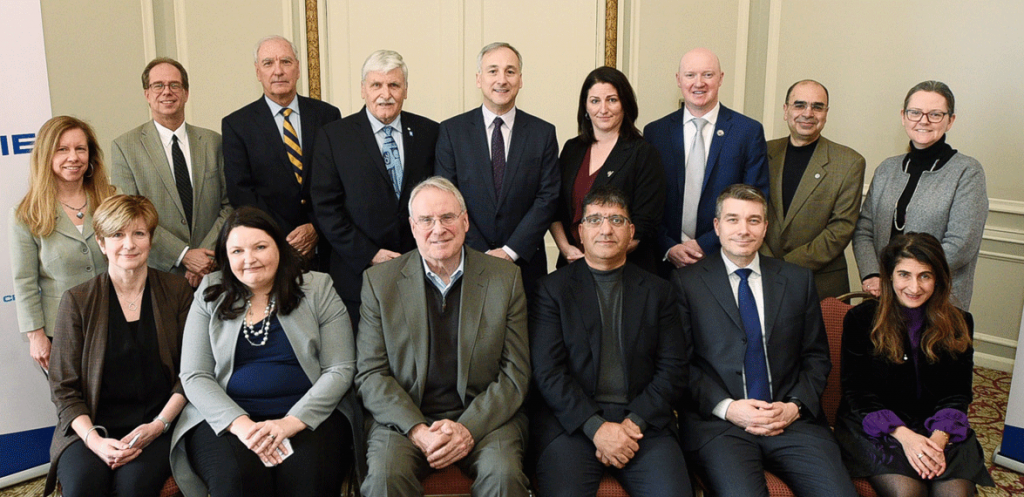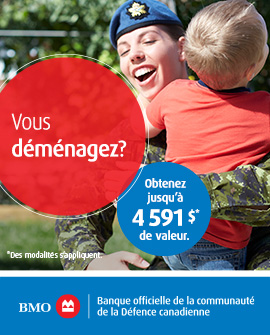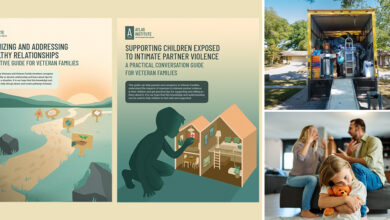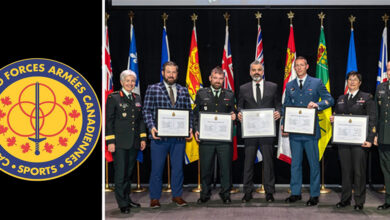Health and Wellness
White Paper released regarding post traumatic stress roundtable
Better training and continuing to make an organizational cultural change on perceptions of post traumatic stress (PTS) were among some of the key takeaways of a roundtable held earlier this year on supporting families caring for a loved one with PTS.
The roundtable, held in February of this year, was hosted by the non-profit medical care insurance company Medavie, in partnership with Wounded Warriors Canada, Vanier Institute of the Family, and the Mental Health Commission of Canada.
Medavie released a white paper detailing the outcome of the roundtable and the next steps last month.
“As a not-for-profit health solutions partner, Medavie is committed to improving the wellbeing of Canadians. With PTS being a core cause of our Foundation, we recognized an unmet need when it came to support available to families, and it was important Medavie be part of finding a solution.
“That’s why we are proud to have partnered with such leading organizations and to have assembled this impressive group of experts to help find a better path forward. This report details opportunities for us to make an impact in the future, and it’s just the first step in what we hope will be on ongoing process,” said Bernard Lord, CEO, Medavie.

Front row, left to right: Lt.-Colonel (ret’d) Dr. Alexandra Heber, Dr. Margaret McKinnon, Ken Dryden, Colonel Dr. Rakesh Jetly, Dr. Nick Carleton, Dr. Tina Saryeddine
Even though, in recent years, there has been a breakthrough with the stigma and services provided to those with PTS, there is still a significant amount of work needed.
In particular, families of those with Operational Stress Injuries such as PTS have limited support, and often, evidence-based programs are “limited unavailable, inaccessible, unaffordable or inequitable.” According to a Medavie press release, “The experts at the roundtable painted an emotional picture of the many challenges faced by first responders and military with PTS and their families.” “The number of times I’ve interviewed someone and they’ve said, ‘I have to take a deep breath when I put the key in the door. I have to brace myself when I go back into the home, and as soon as I go into the home, I can hear what it’s going to look like. I know by how he responds.’ And this is from adult children, this is from siblings, this is from parents, this is not just from spouses,” Dr. Heidi Cramm, Canadian Institute for Military and Veteran Health Research.
Other takeaways highlighted in the white paper included:
- Ensuring community leaders such as faith leaders and even family physicians are armed with the tools to support families adequately,
- Ensuring that service providers have the literacy and knowledge to understand a family’s situation and provide the necessary services,
- Involve the government in harmonizing programs across the country, especially ensuring programs in both rural and urban communities are equally accessible
“In a recent study, we just finished… we asked thousands of public safety personnel, ‘who’s your go-to, who do you want to talk to first, who’s your first resource?’ and by an unequivocal margin, it’s their spouse or their family. They go home, and that’s who they talk to,” said Dr. Nick Carleton, University of Regina & Canadian Institute for Public Safety Research and Treatment.
Participants of the Round Table include:
- Dr. Raj Bhatla, Psychiatrist-in-Chief and Chief of Staff, Royal Ottawa Health Care Group
- Dr. Nick Carleton, Professor of Psychology, University of Regina; Scientific Director, Canadian Institute for Public Safety Research and Treatment
- Dr. Heidi Cramm, Associate Scientist, Strategic Initiatives, Canadian Institute for Military and Veteran Health Research
- Lt.-General (ret’d) Roméo Dallaire, National Patron, Wounded Warriors Canada
- Dr. Hester Dunlap, Clinical Lead, Trauma and Psychological Injury Program/Concurrent Trauma and Addiction Program, Bellwood Health Services
- Lt.-Colonel (ret’d) Dr. Alexandra Heber, Chief Psychiatrist, Veterans Affairs Canada; Assistant Professor of Psychiatry, University of Ottawa
- Colonel Dr. Rakesh Jetly, Senior Psychiatrist and Mental Health Clinical Advisor to the Surgeon General; First Chair in Military Mental Health at the Canadian Armed Forces
- Scott Maxwell, Executive Director, Wounded Warriors Canada
- Dr. Margaret McKinnon, Homewood Chair in Mental Health and Trauma; Associate Chair
- of Research, Department of Psychiatry and Behavioural Neurosciences, Associate Professor, Department of Psychiatry and Behavioural Neurosciences, McMaster University; Psychologist, Mood Disorders Program, St. Joseph’s Healthcare; Senior Scientist, Homewood Research Institute
- Micheal Pietrus, Director, Mental Health First Aid Canada & Opening Minds, Mental Health Commission of Canada
- Dr. Tina Saryeddine, Executive Director, Canadian Association of Fire Chief
- Nora Spinks, CEO, Vanier Institute of the Family
- Dr. Samuel Weiss, Scientific Director, Canadian Institutes of Health Research, Institute of Neurosciences, Mental Health and Addiction
A follow-up meeting is planned with this year’s participants in early 2020 to build on this year’s success in hopes of continuing to make real change for families. To this end, next year’s meeting will also include the voice of family members.










